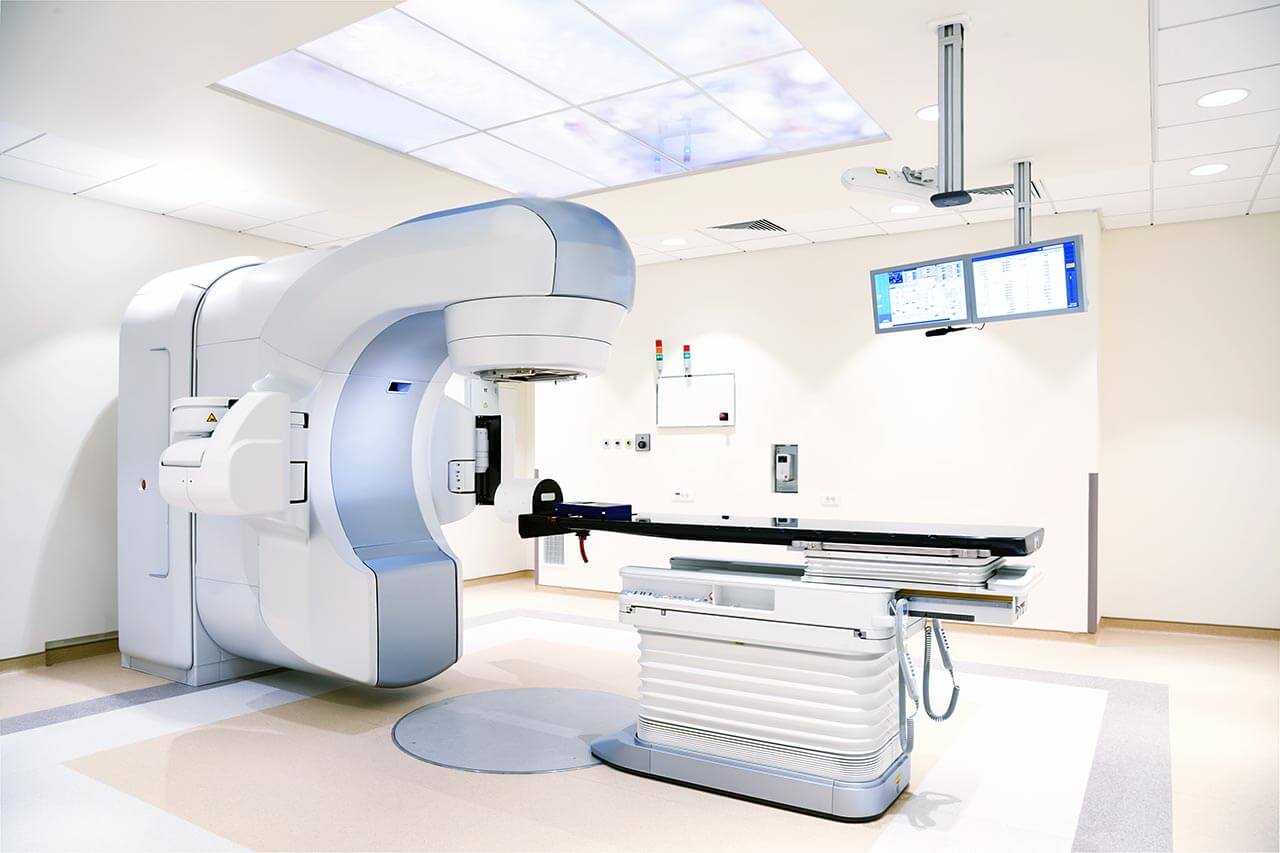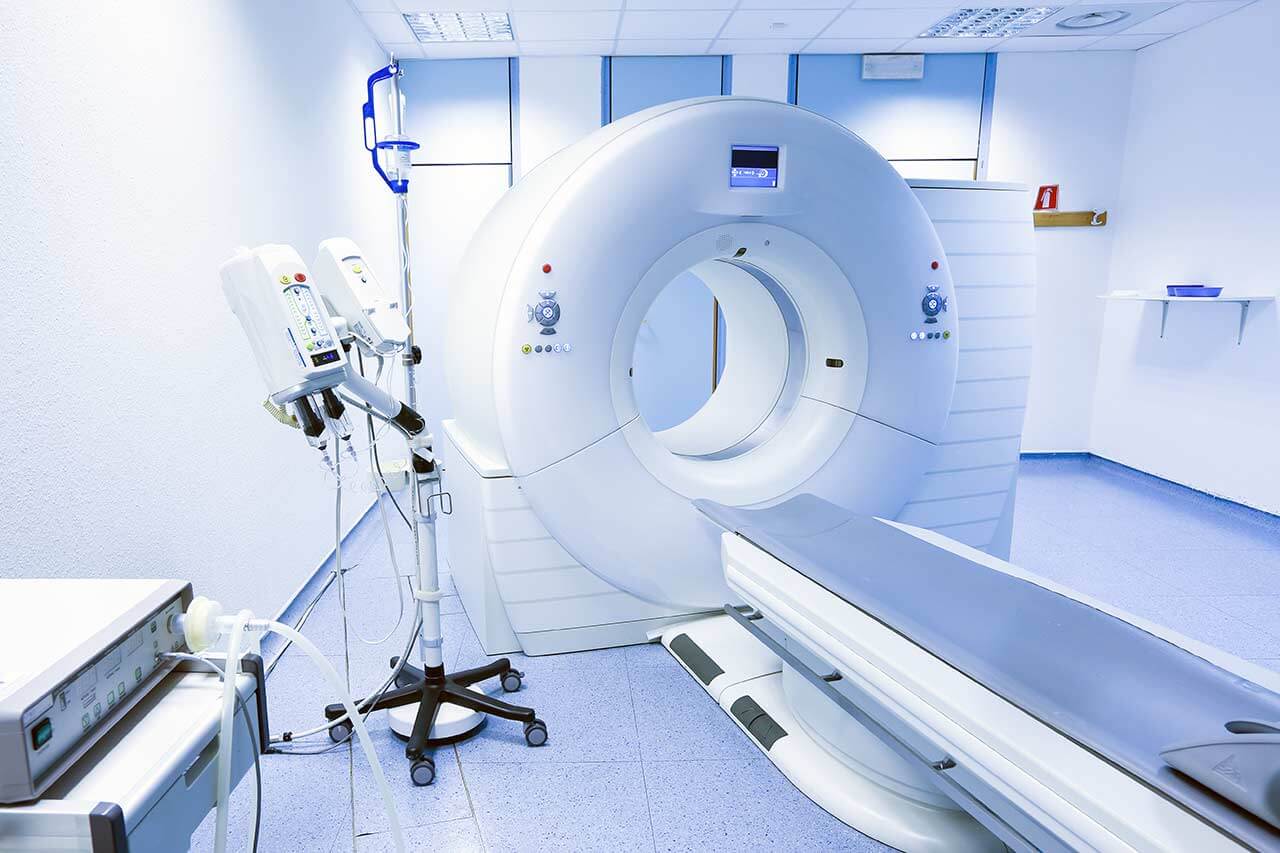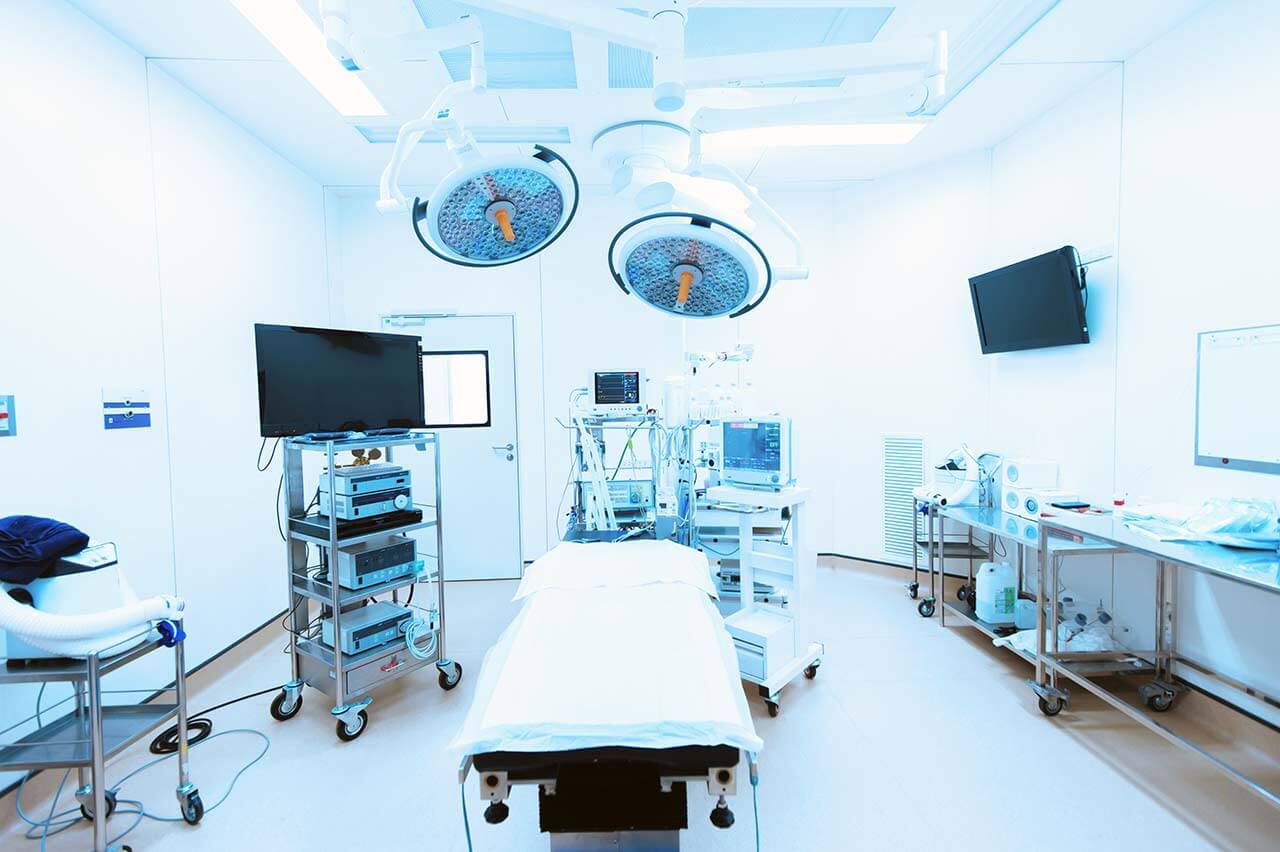
The program includes:
- Initial presentation in the clinic
- clinical history taking
- review of medical records
- physical examination
- laboratory tests:
- complete blood count
- biochemical analysis of blood
- TSH-basal, fT3, fT4
- tumor markers
- inflammation indicators (CRP, ESR)
- indicators of blood coagulation
- ultrasound scan
- chemotherapy (1 course)
- cost of required medications
- nursing services
- consultations of related specialists
- treatment by head physician and leading experts
- explanation of individual treatment plan
How program is carried out
During the first visit, the doctor will conduct a clinical examination and go through the results of previous laboratory tests and instrumental examinations. After that, you will undergo an additional examination, including laboratory assessment of liver and kidney function, ultrasound scan. Based on the received results, the doctor will elaborate the chemotherapy regimen. If necessary, related medical specialists will be involved in the elaboration of a treatment regimen (tumor board).
Chemotherapy is carried out as the day hospital procedure, without mandatory admission to the hospital. After the placement of a venous catheter, you will stay in a comfortable ward. An infusion system will be connected to the catheter, through which the required drug or a drug combination will be administered. All drugs are administered by intravenous drip, slowly, so the total duration of the infusion can be up to several hours. All this time, doctors and nurses will monitor your health condition closely.
After the course of chemotherapy, you will stay under medical supervision in the ward for a few more hours. If your general condition is good, your doctor will allow you to leave the hospital. You will receive the medical report with detailed recommendations regarding further treatment. In the future, you will be able to have a distant consultation with your attending physician and schedule the next course of chemotherapy, if necessary.
Required documents
- Medical records
- MRI/CT scan (not older than 3 months)
- Biopsy results (if available)
Service
You may also book:
 BookingHealth Price from:
BookingHealth Price from:
About the department
The Department of Oncology at the Hirslanden Clinic St. Anna Lucerne provides the full range of services for the prevention, diagnostics, treatment and follow-up care of patients with malignant and benign neoplasms of internal organs and blood diseases. The department is headed by PD Dr. med. Andreas Himmelmann.
In most cases, the treatment is based on the surgical removal of the tumor, which is complemented by chemotherapy and/or radiation therapy. Chemotherapy is indicated for patients with malignant hematologic diseases. The doctors of the department practice an interdisciplinary approach to treatment, which helps to achieve the most successful results.
A treatment regimen is developed for each patient individually, taking into account his diagnosis, the characteristics of the course of the disease, clinical indicators, age, the presence of concomitant pathologies, etc. Naturally, when planning the therapeutic process, the wishes of the patient are also taken into account. Since such a diagnosis as cancer causes a great emotional shock and fear, psychological support is an important component of treatment. The experienced psychologists help the patient cope with emotions and set him up for a favorable treatment outcome.
Thanks to the presence of progressive diagnostic rooms, laboratories and operating rooms with computerized equipment in the department, the patient receives high-quality medical care in accordance with international standards. All diagnostic studies and therapeutic procedures are carried out in accordance with current clinical protocols. The team of oncologists regularly undergoes advanced training courses, participates in medical conferences, congresses, symposiums, and therefore can guarantee their patients exceptional experience, as well as professional application of classic and innovative treatment methods. An important role is attached to the respectful and humane attitude of the medical staff to each patient.
The department’s range of medical services includes:
- Diagnostics and treatment of breast cancer
- Diagnostics and treatment of lung cancer
- Diagnostics and treatment of gastrointestinal cancers (for example, colon, stomach, pancreas cancers, etc.)
- Diagnostics and treatment of cancers of the female reproductive system (for example, uterine, cervical, ovarian cancers, etc.)
- Diagnostics and treatment of cancer of the male genital organs (for example, prostate, testicular cancers)
- Diagnostics and treatment of kidney cancer
- Diagnostics and treatment of bladder cancer
- Diagnostics and treatment of ENT tumors
- Diagnostics and treatment of brain tumors
- Diagnostics and treatment of skin tumors
- Diagnostics and treatment of tumors of the hematopoietic and lymphatic systems (for example, lymphomas, multiple myeloma, leukemia)
- Diagnostics and treatment of anemia
- Diagnostics and treatment of myeloproliferative diseases
- Diagnostics and treatment of other oncopathologies
Curriculum vitae
Education
- 2003 Habilitation in Hematology, Faculty of Medicine, University of Zurich.
- 1983 - 1989 Study of Human Medicine at the Universities of Bonn, Munich and Zurich.
Professional Career
- 2004 - 2005 Chief Physician of the Department of Oncology, University Hospital Zurich.
- 2000 - 2003 Senior Physician of the Department of Internal Medicine B, University Hospital Zurich, and also 6 months as a Senior Physician of the Department of Medical Oncology at the University Hospital Zurich.
- 2000 Lecturer at the Faculty of Medicine, University of Zurich.
- 1996 - 1999 Work in Clinical Hematology, University Hospital Zurich.
- 1993 - 1996 Postdoctoral Fellow and Research Fellow, Immunoregulation Laboratory, National Institute of Health, Bethesda, USA.
- 1989 - 1993 Department of Internal Medicine at the University Hospital Zurich.
Clinical Interests
- Hematologic diagnostics, including bone marrow testing.
- Leukemia.
- Lymphomas
- Myelodysplastic syndrome.
Memberships in Professional Societies
- Swiss Society of Hematology (SGH).
- European Hematology Association (EHA).
- Lymphoma Project Team of the Swiss Group for Clinical Cancer Research (SAKK).
- Swiss Medical Association (FMH).
- Myelodysplastic Syndromes Foundation
Photo of the doctor: (c) Hirslanden AG
About hospital
The Hirslanden Clinic St. Anna Lucerne is a private medical facility, the primary task of which is to provide excellent quality medical services in accordance with the standards of modern medicine. The history of the clinic has more than 100 years, so it has gained a strong reputation not only in Switzerland, but also far beyond its borders. The level of medical care in the clinic is controlled by a strict quality management system certified according to the requirements of ISO 9001.
The medical complex provides both diagnostics and treatment to about 12,600 inpatients and more than 91,000 outpatients every year. It is worth noting that the clinic is especially popular in the field of obstetrics. There are born about 800 babies in three delivery rooms of the clinic every year. The clinic includes 8 progressive operating rooms for classic open and sparing minimally invasive interventions.
The key areas of specialization of the clinic are orthopedics, spinal surgery, mammology, oncology, obstetrics, neurosurgery, gastroenterology and cardiology. Each medical specialty is represented by a separate department with a highly competent team of experienced doctors with in-depth knowledge in a particular medical field.
In addition to the outstanding quality of medical services, compassionate care and humane attitude, the patients will enjoy a pleasant atmosphere in the clinic itself, as well as beautiful natural landscapes overlooking the green areas and beautiful Lake Lucerne, opening from the windows of the patient rooms of the medical facility.
Photo: (с) depositphotos
Accommodation in hospital
Patients rooms
The patients of the Hirslanden Clinic St. Anna Lucerne live in comfortable rooms made in a modern design. Each patient room has an ensuite bathroom with shower and toilet. The standard patient room includes an automatically adjustable bed with a comfortable orthopedic mattress, a bedside table, a wardrobe, a table and chairs for receiving visitors, a TV. If desired, Wi-Fi can be connected. The clinic also provides enhanced-comfort rooms with a safe, a refrigerator and upholstered furniture.
Meals and Menus
The patient and the accompanying person are offered a daily choice of three menus. If you are on a specific diet for any reason, you will be offered an individual menu. Please inform the medical staff about your dietary preferences prior to the treatment.
Further details
Standard rooms include:
Religion
The religious services can be provided upon request.
Accompanying person
During the inpatient program, an accompanying person may stay with the patient in the room or at a hotel. Our managers will help you choose the most suitable option.
Hotel
During the outpatient program, you can live in a hotel of your choice. Managers will help you choose the most suitable options.





